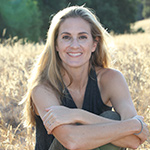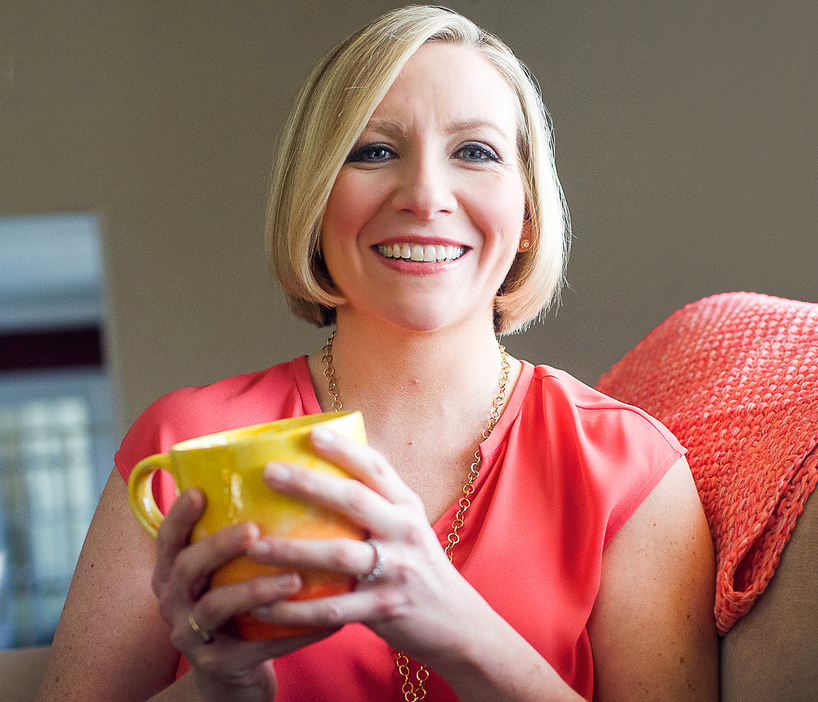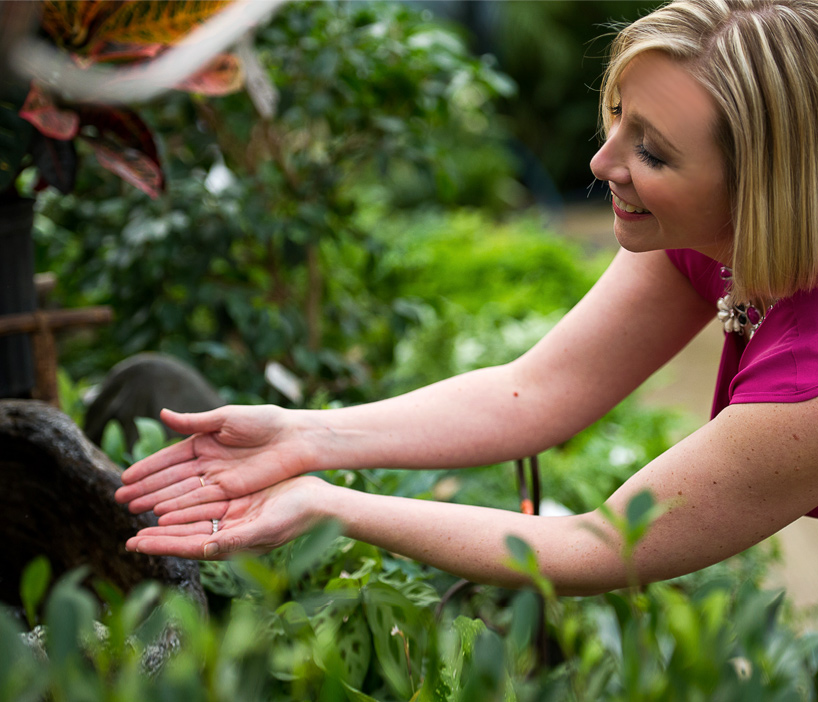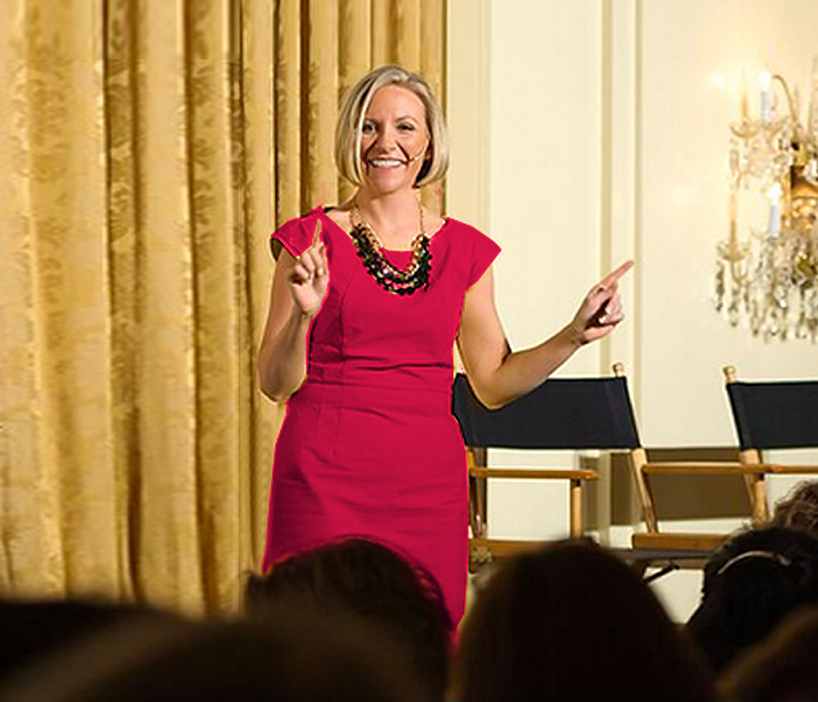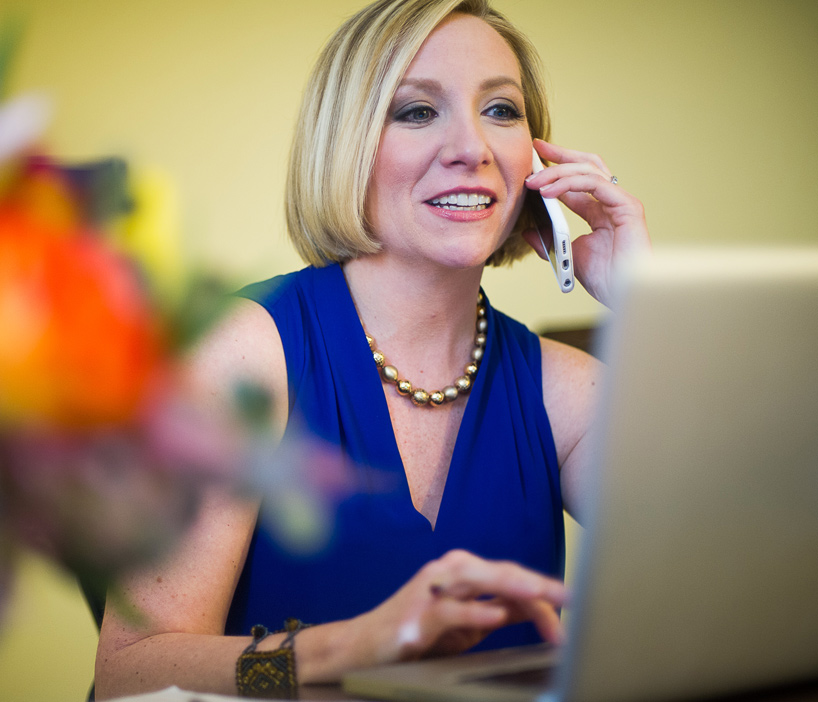Today Patty is talking to Michael Roderick is the CEO of Small Pond Enterprises which helps thoughtful givers become thought leaders by making their brands referable, their messaging memorable, and their ideas unforgettable.
He is also the host of the podcast Access to Anyone which shows how you can get to know anyone you want in business and in life using time-tested relationship-building principles. Michael’s unique methodology comes from his own experience of going from being a High school English teacher to a Broadway Producer in under two years.
Hear how he figured out how to raise money for Broadway productions. It’s fascinating and led to completely unintended opportunities. It’s a fascinating story of what can happen when you are willing to follow inspired action.
Michael explains the concept of or “white label” skills. It’s a unique way to look at potential possibilities or see new ways you can serve others while making a living.
In the midst of his producer experiment Michael’s wife went into labor with his daughter Juniper. His young child was not well so she spent the first 5 weeks of her life in the NICU. There was an outpouring of support that was not expected. He explains that it he felt the only thing to do was to surrender to accepting help so they could focus on his daughter’s health.
Today Michael helps thoughtful givers become thought leaders. He helps them develop frameworks so they can share their expertise and their message in a meaningful and compelling way.
Here’s his framework for the 3 components of referable thought leadership:
- The scientist
- The celebrity
- The magician
Final thoughts: It’s important not to be stuck in the givers fix so much that we neglect to ask.
Connect with Michael:
https://twitter.com/MichaelRoderick
https://www.linkedin.com/in/michael-roderick-1161571/
https://www.facebook.com/mike.roderick.940
Find your referability rating!
SUBSCRIBE TO THE SPACE FOR MAGIC PODCAST ON YOUR FAVORITE PODCAST PLATFORM
Apple | Spotify | Stitcher | i
0:00
You know, they say that those types of experiences will do one of two things. They’ll either tear you apart or they’ll bring you closer. And in our case, it really did bring us closer. We spent so much time together in just this journey.
0:24
Welcome to the space for magic podcast where people who are led by their hearts come to learn the secrets to receiving all the gifts the universe has for us. I’m your host Patty Lennon. I’m an ex type a corporate banker turns intuitive coach, using a blend of common sense brain science and just a dash of magic. I’m here to help you create abundance in every area of your life, and business. Welcome.
0:56
Hi, there, I am so excited to share this interview with you because I do think you are really going to love my guest, Michael. But before we jump in, I did want to give you a trigger warning. Inside this interview is a story of a traumatic birth experience. If you have had that in your past in any way where you think you may be uncomfortable hearing the story of a traumatic birth experience, I want you to take care of yourself and possibly not listen at all. Or if you’re going to listen, listen with someone that can hold your hand and comfort you in the event that it is triggering for you know that this is not my intention was to trigger anyone but in since the story is in the interview, I wanted to to be aware of it before we jumped in.
1:49
Hey, everyone, welcome to this episode of the space for magic Podcast. Today I have a guest that is one of my newer friends, I would say and I’m so excited for you to hear his story. Before we talk about his story, I’m just gonna give you a little bit of a background to him. Michael Rodrick is the CEO of small pond enterprises, which helps thoughtful givers become thought leaders by making their brands referable their messaging memorable and their ideas unforgettable. Oh, my goodness, Michael, I’m not going to have you jump in yet. But there’s this unique methodology you talked about that I definitely want to make sure that we get to so please remind me. Sure. He is also the host of the podcast access to anyone which shows you how you can get to know anyone you want in business and in life. Using time tested Relationship Building Principles. Michael’s unique methodology comes from his own experience of going from being a high school English teacher to a Broadway producer in under two years. Holy mackerel. I didn’t even know that about you, Michael. Welcome. Thanks so much for having me. Okay, so I want to just give everyone a background and tell us how I came to know Michael. Well, I guess originally I came to know you through a networking lunch that our mutual friend Miriam put on, right? Yes, that and Miriam Schulman. I’ve had her here on the podcast, she will actually be coming on in January because she’s got a brand new book coming out. So she was this was pre pandemic used to gather people and have, we’d have lunch together in New York City and get to meet new people. And then another awesome connector, Terri Trespicio had booked both of us to connect us both to how design live. And that’s where I really kind of got to know you and know your unique, unique take on being in the entrepreneur space and how you’ve really grown, which is really through connections. Is that fair to say?
3:52
Oh, yeah, yeah, that’s definitely a big part of the process, for sure.
3:57
And then beyond that, we were talking and you just had the most incredible experience about what life looked like in surrender at an early part of your parenting journey. But before we even go there, I’m so curious what happened for you to go from English teacher to Broadway producer to then what you do now?
4:24
Yeah. When I was in sort of the, the theater world I was I was teaching high school and I was doing these sort of smaller shows. And one of the things that I had learned about was that Broadway producing is really about raising money. It’s about being very good at finding investors so that those shows can basically get off the ground. And one of the nuances that I had learned about it was that most people who would raise money would go to another Broadway producer and say I I’ll raise this amount of money for you, in order to get credit on the show, meaning my name would be above the title or my name would be next to the other producer or something of that nature. And when I realized that I had this idea that what if rather than going to people and asking for credit, I basically just went to other producers and said, I just really want to get more experience in raising money. So I’m not going to ask you for credit. And if you’re willing to give me the paperwork, I’m willing to go out there and try to find you investors. And that really just caught a lot of them off guard, because so many other people were coming in asking for credit. So I had a lot of producers give me their paperwork and say, Hey, why don’t you go out there and see if you can raise money, but the unintended effect that cause was when I would talk to investors. Now I didn’t have one project to pitch them, I actually had a portfolio. So I ended up raising a lot more money, because if somebody said, This thing was an interesting to them, I actually had four or five other projects that I could show them. And eventually, it just got to the point where I was raising money for so many different projects that another producer approached me and basically said, if you want to raise money on our show, we’d like to give you credit. And that’s how I got my first Broadway producing credit.
6:30
Wow. Now, so I always find like in the connection between sort of magical occurrences and intention setting to be intriguing to me, of course, you did a lot of legwork. So I’m not taking that away. But it feels like you’re following inspired action. Is that fair to say? Oh, yeah. 100%. And before that, had you? Did you sort of in your heart, say, I really want to be this? Or did you see yourself like, Did you see your name? And in that producer line? What was the precursor to in the intention setting world? I would say
7:07
yeah, it actually was very interesting about that is that is actually how I started to really kind of get into this whole sort of relationship building world. Because I had seen a couple of Broadway producers speak at an event and the person who was running that particular space, the general manager of the space, had invited me to a Christmas party that those producers were going to be at. And before that time, I had really never done well, with sort of like the large crowd gathering, I would be the one to sort of stand in the corner. And I very distinctly remember having this conversation with myself when I saw this other producer there, that if I don’t go up and interrupt this conversation, if I don’t go up and say hi to this woman, I might as well forget about being a producer. And I sort of overcame that anxiety that I had, and just went over and interrupted this conversation, and introduced myself. And this producer then introduced me to a bunch of other producers invited me to a gathering of producers. And that’s really how I learned a lot about the industry.
8:20
And when you had approach those original, so you were approaching the directors, right? Not the producers,
8:27
when you’re charging the producer, the producers, yeah, that the lead producer, okay.
8:32
So you’re approaching them and saying, I’ll go out and get your money. I don’t need producer credit. Did you do that? Because you legit wanted to understand what that looked like? Or was there a part of you that said, this is a faster way for me to do this, I would rather just be of service to them, and kind of make inroads and that will get you where I need to go? Can you kind of talk through what your mindset was around that?
9:01
Yeah, I mean, at that time, it was really more interestingly enough, it was really more of kind of almost like a discovery process for myself, where I was like, I don’t really understand this industry very well, yet. And this would be a way for me to understand the industry better. So I sort of had that thought of like, okay, well, let me let me see, kind of, if I were to just sort of present this aspect of let me just go out there and start raising money, what that might look like and how that might work out. And for me, it was a lot of just sort of experimentation. It was a lot of saying like, Okay, I think this may be a path to get into the producing world, but like anything else, it’s an experiment. So let me sort of test and see what people say and how you know how that goes. And I think that that for me was really what it came down to. I definitely don’t think, you know, it’s one of those things where there’s the aspect of trying to be like 100% strategic about something, right. And then there’s the aspect of sort of understanding some element of strategy and then just sort of being like, Okay, I’m gonna try this and see what happens. And I would say, that’s probably more the place that I was in.
10:20
I love that experimentation piece. I mean, part of what caused me ask the question is totally an aside, which is I’m just starting to learn about the Enneagram. And I am an Enneagram. Two. And so what Enneagram twos tend to do is give with the underlying, like, a manipulative motivation. So I’m gonna give, give, give, but secretly, I’m expecting something in return. And I don’t, I don’t know what you are. And I wasn’t putting that on you, Michael. But I’m just sort of curious about this, giving this at the core of the stuff I talked about here is like, a lot of our people are over giver. So let’s explore why we give more than we receive. But in your case, what I love is this spirit of experimentation, which takes me in a completely different direction, which is, I’ve been talking to some local universities about giving talks, some of my, you know, I know some of the professors at local universities in there, they’ve been asking me to come in and talk about things around this message, you know, making space for magic as these emerging, college seniors are going out into the world and the generation that’s heading out into the workforce. And I think, you know, probably straight through millennials, but I could be wrong. They have this idea. And I really think us parents did them a disservice. I don’t know how we did it. But there’s this idea that you sort of have to have this full concept of what you’re going to do, right? And so then there’s this feeling of there’s no opportunity for me, because because of the job market where it was, you know, maybe three, four or five months ago, but to me, it’s, there’s always a place to experiment, I think, yeah. Oh, yeah. And you might not get paid the biggest, you might not get what everyone else is getting for it. But if you get experience. Yeah, go ahead. You were gonna speak?
12:23
Yeah, no, no, I mean, you’re going exactly the direction that I was going to go where it’s like, the experiments that you do pay you in so many different ways. So you may decide to work for a company. And what you make is not consummate to what you know, a lot of other folks are making at that level at that particular company. But if that company is doing something really interesting, and they’re experimenting with something, and you’re learning, you’re getting paid twice, you’re getting paid from, you know, they’re how they’re paying you regularly, but they’re also paying you in the experience that you get the relationships that you build, like there’s just so many other factors at play, when it comes to that.
13:13
Hmm, so good. Now, fast forward a little and when you were going into this producer world, which I would imagine is like, super risky, right? Yes, right? Yes. I know nothing about it. So I mean, it’s fascinating. Were you married at this time? Or were you kind of off on your own and willing to live off of peanut butter and whatever else? You live off that one?
13:41
Yeah, well, what they say about producing is that you can’t make a living, but you can make a killing. Yeah, that really is true. If you have one of these shows that hit, you could do very, very well. But most shows lose their money most most of the time, it doesn’t really work out. So at the time, I basically was looking at, okay, well, I’m raising money for these shows, but there’s not really much of a chance I’m gonna make money off of these shows. So what else am I going to do? And because I had left teaching, and I was mainly, you know, focusing on the theater world, I basically just kind of looked at and said, Okay, well, what’s the expertise that I’ve developed as a result of being a producer, and I realized that, you know, a lot of people did not take the time to sort of figure out all of the inner workings of a show. So I sold my services at the lower levels of producing so the people who were doing like 99 seat, and under shows and smaller shows here in the city, they would hire me to help them produce their show, or they’d hire me to help them create a reading that they would then present to investors for their projects and things like that. So that was really how I cobbled together a living in The world of producing and at the time, I was actually dating my now wife, Nora. And she helped me with a lot of those projects where, you know, we would put together showcases or we would put together events and, you know, things of that nature. And that was really how we made money during the time that I was solely focused on producing.
15:27
Fascinating, okay, and what advice would you give someone because I think there are people, especially post great resignation, that are like, I need to leave this thing, because whatever reason, and where my heart’s really calling me is here, but there’s no guaranteed income in the short term. Also, in your case, there was no guarantee at all, there was a possibility of a killing. What kind of mindset advice would you give people like staring down that journey, that path?
16:03
Yeah, I mean, I think that you want to put yourself in that mental place of experimentation, you always want to ask yourself, like, what is an experiment I can do to generate the income that I seek. And the thing is, we all have, I often refer to it as a white label skill, we all have the skills that they basically travel with us no matter what profession we end up in. So there’s something that we do really well. And it serves us in whatever job we end up in, even if we’ve been in five or six different jobs. So personally, my weight label skill is teaching. It’s helping people understand concepts. So I brought that white label skill to producing where I would be teaching potential investors and people who were involved in shows what the value was of these particular projects. And I was also when people would hire me to help them with their smaller shows, I was teaching them and guiding them through that process. And then when I moved on into, you know, the whole world of coaching and consulting, I’m always teaching, right, I’m always breaking down these concepts and making them as simple as possible. And helping people understand these ideas that can sometimes be difficult to grasp. So the thing I would say, is that if you are in that place, you want to ask yourself, what are experiments that I can do to help me find the things that I’m looking for?
17:49
Hmm, that’s really, really strong advice. I just want to remind everyone listening, this would be a great episode for you to share with the young people out there in your life that you know, are emerging into the work world, or maybe new in the work world and really have this very concrete idea of how to make success happen. Because in my experience, that isn’t how it works. And I think what you’re describing is a beautiful pathway. That is not what you do for a living. I do have a just a curiosity. Yeah. If you had three things, you know, three people in front of you. One is you teach English to a high school senior who’s already been accepted into their college of choice. That’s one. Two is teach the producer that’s in front of you, this smaller producer, whatever it is that they most need to learn, but are just so blocked, that it’s important for them right now. Or three, work with your current client, maybe you could kind of describe what you’re teaching them? Sure. Which one do you think is the hardest to teach?
18:59
Hmm, that’s a really good question. Because there’s so many different elements of where it can be hard for each. But I do honestly believe that the high school student is the hardest to teach because they are not often or always sort of coming to the experience willingly. If they don’t like your subject, if they don’t let you know like, whereas an aspiring producer is coming to the learning experience, willingly, the coaches and consultants that I work with who are wanting to develop their thought leadership and build out their frameworks. They’re coming to me willingly and saying, Help me understand how to create this framework how to build out these ideas, where as the high school student, you know, is not always coming willingly. And there’s going to be other things that are going to be way more interesting to them and exciting to them. Then the subject matter that I am teaching, that’s the other really big thing is, in the high school scenario, you are teaching a subject and your student is not necessarily always a fan of the subjects. Whereas in the other two scenarios, the subjects really chosen for you, and these people are coming to you with the desire to learn about the subject.
20:23
Interesting. See, now I thought I was thinking it would go, Well, I thought I liked your reasoning, I would have thought that the clients that you currently how, and maybe even these emerging producers, they still want the skill you’re trying to give them to just to pay someone to do it for them to like, not have to do it themselves.
20:44
Yeah, and I think you do encounter some people who that’s kind of where they’re, that’s where they’re at, where they’re like, I just want somebody to do it. For me, I don’t want to deal with it. But I think that it can be a challenge. Sometimes if your attitude is I just want somebody to do it for me, or I just want somebody to, to make it all easier, because there’s always going to be a part of you that has to do the work to really make it successful. You know, I think like that’s something that we constantly have to be aware of that we could have the best teacher in the world. But if we’re not willing to do the work as the student, we’re probably not going to learn nearly as much as we could, ah,
21:32
Words To Live By. I love it. All right. So now, when you eventually you and your wife were married, and you decided to have children, I’m assuming it was a decision. But at the point that you understood you were going to becoming parents, what was your kind of work life balance at that point?
21:52
It was definitely, just crazy. It was in that period where I was actually working on sort of developing some new offers. It was a very, very experimental time. And there was actually a lot of parts of that business that were not working. I was learning a lot of really hard lessons, right around the time that Nora became pregnant. And you know, we were starting to kind of get prepared to be parent, there were a lot of moments where either a project just like basically fell through, or something that I thought was going to sell didn’t sell as well. So going into that couple of months towards the birth was a pretty stressful time. And there was a lot of just trying to sort of figure out, okay, how am I going to make these things work? And then we were literally like, Okay, now we’re in, in that period where shut off your phone, because Nora is going into labor and we’re not doing anything until until we get past this, you know, this section.
23:08
And do you say the name of your children allowed?
23:11
Yes. Okay. Juniper.
23:14
Juniper, was your firstborn? Yes. Juniper
23:16
was my firstborn. Yeah. Because that’s
23:18
the story that I did want to get to. And that, I think is so powerful. And so talk about what happened at that point.
23:27
Sure. We basically we had had it we had a doula. And that doula was sort of helping us through the, through the process. And during the sort of initial phase before we were sort of hospital ready. There was this period where the contractions were coming pretty close. And it looked like we were all sort of like, it was like a two o’clock in the morning or something. Like it was like a late night kind of thing. And we were kind of getting ready to go to the hospital, and then everything slowed down. And, you know, it wasn’t what we thought it was going to be. It was like kind of like a false start kind of scenario. So that doula went home, and she was booked by another family. So she ended up going into another process with that family and recommending us another doula. And I think it was the following night, when things really started to pick up. So the new doula Emily came, and then it was okay. Now, like, we’re off to the hospital, and everything. You know, I think that a lot of these stories, things become a bit of a blur, especially, like, sort of the birth process, but we were in the hospital of I think it was like close to two days of just labor stuff. Where it was just it was a pretty Long, you know, labor process. And then at one point, I was asleep in the chair next to Nora and the doctor woke me up and basically said, We’re, it’s time, we’re going to have this baby. And everything starts the pushing, you know, all the, you know, all the things that you see on the, on the TV, and we go through this process. And when Juniper came out, she was not breathing. And I remember the doctor, sort of rubbing, like, sort of rubbing where her eyes were poking in her nose to sort of make sure like there wasn’t just like fluid in there. And then I very, very distinctly remember him yelling, Get me peds get me peds. And then the entire sort of flood of sort of pediatric professionals sort of came in, put her on a this little stand to help get her heart going. And they were sort of dealing with all of that. And then they rushed her out. And we had no idea what was going on. And everybody was out of the room except for us and our doula Emily. And that lasted for about a couple hours, where we were just we didn’t know what was going on. And then eventually, somebody from the NICU came in and explained to us that Junie was alive, she was in the NICU, they had put a cooling cap on her because when there’s a brain bleed, the device can basically slow the bleeding down so that whenever there’s a brain bleed, there’s the idea of like toxic brain cells like hitting and causing things to deteriorate. So the cooling cap was the tool that really serves saves the child, it’s a miracle of modern medicine. And, you know, we were told that we could go to the NICU, we could see her, you have to be very, very careful about touching her or even getting too close to her because the reaction could set off another seizure, she was having lots of seizures, she was being put on all these different medications. And that journey was about five weeks that Juniper was in the NICU, and that we went back and forth. Every day, it would sort of finish, you know, we’d finished at the hospital, we’d go home, we’d we’d have you know, dinner in the evening, and then come back and check on her and, you know, go back the following morning. And it was just back and forth, back and forth, back and forth. And, you know, at that time, neither of us were doing any kind of work, like there was really nothing happening. And our doula set up a GoFundMe for us, which was just kind of wild, it was something you know, none of us had even thought about. But the number of people who I had, you know, just helped in the past or supported in the past. And something just came out of the woodwork and just ended up just donating or sending us things. I had one friend, I had one actress who I gave some advice to years and years and years before, who also had kids donated, like close to a year’s worth of clothes, for Juniper from their sort of like, you know, additional sort of clothing, sort of batch and there was just, you know, people sending, like, making us dinner, or like just helping us in all, you know, in all those ways, because it definitely was that time where there really wasn’t much we could think about or even sort of focus on it, other than just focusing on her and sort of her journey.
29:09
And I would imagine and just for everyone listening, Juniper is a vibrant, healthy, yes, special human in the world. So I just want to say that because if you’re listening and that you’re holding your breath around that part, I think it’s important to be able to receive the rest of what you’re sharing, Michael. Yes. You know, you said that you were just so consumed with the crisis that you couldn’t really even think but straight but once the crisis had calmed, I guess I would say sure if did you struggle with having been able to let in that help? Did you have any difficulty with letting that in?
29:50
Yeah, I mean, I think that there’s always a part of you that does struggle with that. That has the feeling like well, I I can do this, I can figure this out. Like, it’s a very natural sort of thing that, you know, that comes up. But I also just sort of had this, I guess the best way I can describe it is sort of like surrender, where I was just like, this is where we’re at right now. And this is what this is going to be to help us get through it. And there was this part of me that kind of just said, like, okay, let’s just allow this to happen, you know, and allow this to be sort of what what it will be and focus on, you know, focus on doing what was best for her, you know, and I, and I mean, when she, when everything at first happened, I even said to, to Nora and her family, I said, if we find out that, we really have a lot of additional things that we have to do. And I have to go back to teaching and give up the whole entrepreneurship thing I will, if that’s what needs to happen, like, I was definitely in that place of, I was just gonna do whatever would be best for her.
31:10
And I think I mean, I think the grace that you handled all of that with is, is pretty amazing. How does your wife remember that, if you feel fair telling her story about it? Yeah,
31:24
I mean, I think that, for her, she had a very similar sort of experience with the birth itself and sort of like being ready to, I mean, she was in position ready to breastfeed, you know, and then, just, suddenly, that wasn’t the case. You know, and there were a lot of things during that. And there’s a lot that, you know, they say that those types of experiences, will do one of two things, they’ll either tear you apart, or they’ll bring you closer. And in our case, it really did bring us closer. We spent so much time together in just this journey of going through the NICU experience getting ready to have Junie come back, you know, there were additional sort of steps along the way, where at one point you need needed a feeding tube, we had to do like a surgery to have her have a feeding tube that was luckily, taken out within a couple of months after she had come home. But you know, that was its own sort of process to deal with to be concerned about, would she get her sock or swallow back? Like would those things actually happen? And luckily, she did. I mean, she’s a rock star. She’s done amazingly amazingly well, from where everything has, has happened. But you know, I think that for Nora, you know, without speaking for her without saying, Oh, this is what Nora was going through. I think it was a very similar like, we were there for each other. And in the moments where I couldn’t be strong, she was strong. And then the moments where she couldn’t be strong, I was strong. And then it just sort of happened in that way. If I had to think about it.
33:23
That is such a incredible journey of surrender of receiving. I do want to just say I’m giving a shout out to all the doulas
33:33
out there. Amazing work.
33:37
Yeah, we don’t have that particular version of a story with our doula. But, you know, I think doulas are one of those people who are just called, you know, their call. Yeah. So extra big shout out for your doula for stepping in and playing the extra roll. So now, Michael, when you look at your work, which, you know, I don’t think we’ve really talked about it and described it. So why don’t you describe what you do? And then my question is, how did that journey? How did your work, you know, funding productions, all of the things you’ve just talked about? How does it influence the way that you consult with people and work with them today?
34:20
Yeah, so the work that I do today is focused on the way I frame it is helping thoughtful givers become thought leaders. What I find is that people who are very good at doing the work are the ones who always deprioritize the packaging of their own ideas. So they don’t take the time to sit down and develop their own frameworks or their own models, or their own ways of really sharing their expertise. So I come in and I help them with that I help them develop those frameworks. I help them build those ideas and those concepts and really take that expertise that they’re giving to their clients and make sure that it can be translated outside of that, like service client, you know, kind of worlds, and really make it more like, if you want to get your message out there. Here are the things that you do, here’s how to make it referral and sort of go through that process. And to answer your question in terms of how all of these other things sort of inform it? Well, when I think back to my work in Broadway, one of the biggest things that I had learned about was that Broadway is focused on mass appeal, Broadway is focused on the idea of getting large numbers of people to pay attention to a show or a project. And so when I work with clients, I always kind of think about it from that angle, it’s like, well, how would this idea be approached? If it were a Broadway show? How, what title would we use? How could we craft this concept, so that it’s much more likely that I would have the level of word of mouth and the level of refer ability that a Broadway show has. And, you know, the interesting thing was, while I was sort of in this phase with juniper, and really just taking the time to serve, take care of her and be a parent, I had that realization about myself, where I was just like, I’ve been helping all these people, I’ve been solving all these problems and doing all these things for all these people. But I haven’t really ever sat down and like, really packaged my own stuff. And you know, what do I want people to know about me? Other than just oh, he’s a good connector. You know, he’s great at sort of connecting people. And I just had that realization, I was like, well, if, if I’ve gotten into this place where I’m constantly serving everybody else, and I’m not actually sharing the breakdown of my expertise, chances are, there’s probably a lot of coaches and consultants out there who are dealing with the same thing. And that’s really where a lot of this refer ability, referral brand work, started.
37:09
I love that. Now, what I did say at the beginning was remind me to ask you about this, you stated like the Gosh, I’m totally gonna butcher it. But what I’m talking about is like, it’s your part, scientists, you’re a part celebrity. Do you know what I’m talking about? Yes, yeah. Okay. So you speak it?
37:29
Yeah. So basically, the three components of thought leadership, the scientists, the celebrity and the magician, and the scientist is the person who is really taking the time to look at the science to come up with the ways to really explain something, make it super clear, you know, it’s super clear for us really break down, you know, what is the research, what are the things that backup the ideas, but if you’re just a scientist, a lot of the time people struggle with understanding you right with getting that point or sort of understanding those things. And in some cases, you don’t really put your ideas out there, because you’re just sort of like in the lab all the time. So the next layer, the next, you know, elements, is the celebrity. And the celebrity is very good at promoting, right, they’re very good at letting others know what their ideas are, and what their concepts are, they’re good at getting out in front, and not hiding behind the curtain, so to speak. And the magician is really, really good at crafting very clever ways of presenting things, right? They come up with all these things that you want to talk about, and that you want to share. So if you’re really working on developing thought leadership, and you want it to be referral, you really want to think about how am I bringing in the elements of the scientist and the celebrity and the magician to the content that you’re creating?
39:08
I love that the first time I heard you say it, just like it dropped in. It was so beautiful. Of course, anything that’s got the word magic in it, I’m going to extra love anyway. All right, well, before we forget for you listening, if you’re feeling very connected to my goal, and you feel like my goal might need to my need be the person that is going to help you just know, you can reach out to him. How how do you want people to find you, Michael?
39:35
Yeah, so my website is just smallpondenterprises.com You can always go there drop me a line. If you’re really curious about your own refer ability. I have a tool called MyReferabilityRater.com You just go to that site and you can actually take a little test and it’ll tell you how referable you are. It’ll give you an idea of sort of where are the areas where you could improve and you know all all of that fun stuff. And then you’ll be on my mailing list and you know, all that fun stuff. So,
40:05
and I love that we’ll put those links in the show notes as well as access to anyone your podcast, I did interview you for your podcast. So I think by the time this drops, that episode will be out. So we’ll put that link in there as well. And, oh, well, Michael does work with people, semi privately in a mastermind setting. So is that fair to say semi privately, maybe you do do private as well. So um, just know, if you would like to work with him. Definitely reach out. And again, we’ll put all those links in the show notes. So, Michael, when you look back on this journey, this incredible journey you just shared. And you know, on this podcast, we were talking about making space for magic, you know, where do you kind of surrender so that these bigger forces can step in and give back to all that you’ve given to the world? Do you have any last words of wisdom that you want to share with the audience?
41:00
Yeah, I mean, I think that it’s really, really important to not get stuck in what I call the givers fix, where anytime we give, or anytime we support, anytime we help others, there is a chemical reaction in the body. And some say it’s oxytocin, some say it’s dopamine. But regardless, we get a rush whenever we give, and we don’t get any kind of chemical reaction, at least that’s pleasurable when we ask, and when we let others know what it is that we need, and what it is that we could use help with. So I think it’s really important to recognize when you’re getting into that givers fix where you’re just sort of getting high off of that great feeling of helping everybody else. But you’re never letting others know what you could use help and support with. And it’s really, really important to make sure that you’re doing that letting people know what it is that you need, especially if you’re the type of person who just loves to give and support others.
41:58
Such good advice. Oh, my goodness, Michael, thank you so much for being here with me with us. I am so grateful for you for sharing this story. And for you listening. Thank you for taking this time to be with us. And you know, I wish you all the space for magic. Hey, thanks for listening. If you know someone who needs to hear this message, please share this episode with them. And if you’re feeling really generous, I’d love for you to leave us a review at your favorite podcast app. It helps us reach many more people and it fills my heart with so much joy. When I hear what you have to say about what I’ve shared. I’m cheering for your success. Have an amazing day. And don’t forget, always create space for magic.
Thanks for being here and reading my message. I want you to stay connected with me so that I can share all future communications with you.
Please enter your name and email below to join my community.
Success! Thank you for joining. You'll receive a confirmation in a while.



